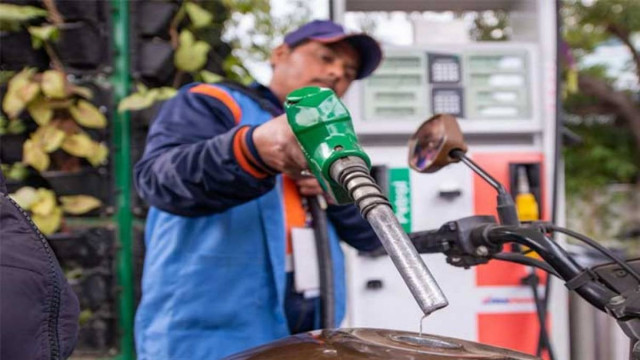CCOE body to evaluate deemed duty spending
Petroleum Division failed to respond to queries, causing delay in approval of refinery policy

The failure of Petroleum Division to respond to queries has caused delay in approval of the proposed oil refinery policy designed to upgrade the existing plants, say sources.
The Cabinet Committee on Energy (CCOE), in its previous meeting, took up the collection of deemed duty and its spending on the upgrading projects of refineries. However, the Petroleum Division failed to respond and as a result, the cabinet body refused to approve a new refinery policy, said sources while talking to The Express Tribune.
Though the committee approved a green field policy for setting up new refineries in order to meet the demand of Saudi Arabia before the implementation of a project, it shied away from offering incentives to brown field projects for upgrading the existing refineries.
CCOE constituted a committee to deliberate the issue further, which would give its report in the next 10 days.
Oil industry has hit out at the government for not giving any incentives to the existing plants for enhancing their processing capacity. The objective of plant upgrades was the production of Euro-V standard fuels to meet environmental goals, said industry officials.
Sources pointed out that the Petroleum Division and the CCOE had already settled the issue of deemed duty collection and its spending during the tenure of previous government.
At that time, the cabinet body asked the same questions like how much deemed duty the oil refineries had collected and what was the investment made in project upgrades out of the total receipts, and sought a report from the Petroleum Division.
The ministry informed the CCOE that they had collected Rs200 billion in deemed duty and invested the amount in their projects.
According to sources, the CCOE raised the same questions again in a recent meeting but officials of the Petroleum Division were not willing to respond that the matter had already been settled. Now, after three years, the issue has come to a stage where it started.
Recently, the Petroleum Division issued a letter to the refineries, asking them to submit details of deemed duty collection and its spending on plant upgrade projects.
The committee, formed by the CCOE, will evaluate the duty collection and its spending. A report will be submitted to the cabinet body for formal approval.
In response to observations of the CCOE in a meeting held on August 20, 2021, the Petroleum Division recalled that deemed duty (tariff protection) was introduced post-abolition of the guaranteed return formula (10-40%) in 2002 with the purpose of running refineries on a self-financing basis through offsetting losses and expanding/ upgrading.
A 10% tariff protection had been introduced for diesel and 6% for JP-4, kerosene oil and light diesel oil.
However, in 2007-08, the tariff protection was limited to diesel and it was slashed to 7.5% as well, effectively reducing the tariff protection to around 2% for the overall production slate.
Since then, the refineries have made investments and capital expenditure of Rs200 billion out of the collection of deemed duty.
The cost of plant upgrade varies from $900 million to $1.5 billion. Oil industry officials say the upgrading of existing refineries could meet the same objective as the green field projects, and that too at one-tenth of the cost, saving foreign exchange.
On the other hand, foreign investors are willing to inject equity up to only 30% of the project cost and the remaining 70% will be in the form of local/ foreign debt, which will lead to dollar outflows.
Published in The Express Tribune, May 16th, 2023.
Like Business on Facebook, follow @TribuneBiz on Twitter to stay informed and join in the conversation.



















COMMENTS
Comments are moderated and generally will be posted if they are on-topic and not abusive.
For more information, please see our Comments FAQ